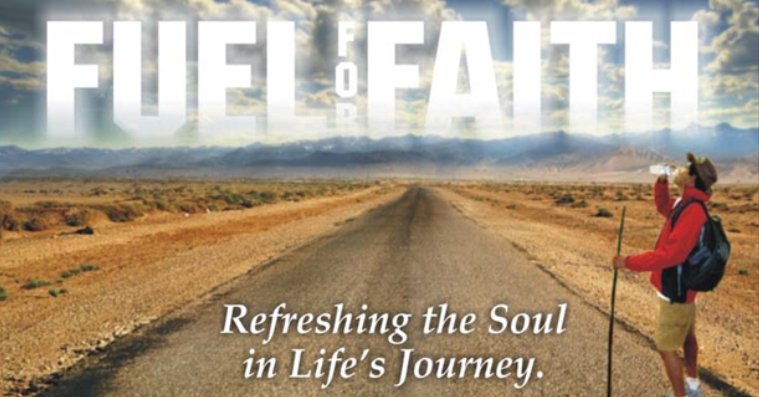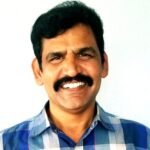
“There is more to life than increasing its speed” said Mohandas K. Gandhi. We live in a world that is obsessed with doing things at lightning speed, in fact a recent study shows that many college students today believe e-mails are too slow for them and they even wonder why people still have land lines, music CDs, newspapers…etc. The introduction of iphones, touch-screens, blazingly fast Internet, and the ability to have the world at our fingertips in seconds has definitely redefined time and space for this generation. Life today seems to move at a hectic pace, we are able to achieve things faster than ever, sometimes it looks like our lives are being fast forwarded right in front of our eyes, we are definitely going crazy fast, but the tragedy is that most of the time we have no clue where we are heading.
A sociological study was done by Dr Anthony Campolo with people who lived over the age of 95, they were all asked the same open ended question: “If you could live your life over again, what would you do differently?” Three statements topped the list, if I had to do it over again: 1. I would be more reflective, 2. I would risk more & 3. I would do more things that would live on after I am dead, like investing in people as opposed to self-serving deeds. It was Socrates who said “The unexamined life is not worth living”. One of the problems with a busy life that has no time to pause and examine is that we don’t know if we are driving or drifting.
“The unexamined life is not worth living”. One of the problems with a busy life that has no time to pause and examine is that we don’t know if we are drifting or driving.
Soren Kierkegaard said “Life can only be understood backwards; but it must be lived forwards”. If we do not take time to pause and reflect on the past and present, there is very little chance for our future to be meaningful. Ken Gire in his book “The reflective Life” writes “The reflective life is a life that is attentive, receptive, and responsive to what God is doing in us and around us. It’s a life that asks God to reach into our heart, allowing Him to touch us there, regardless of the pleasure it excites or the pain it inflicts… Much of what is sacred is hidden in the ordinary, everyday moments of our lives. To see something of the sacred in those moments takes slowing down so we can live our lives more reflectively…Living reflectively provides opportunities during our day for a closer look at things, at people, at ourselves, and at God. The faster the pace of our life, the more we will miss those opportunities.”
Living reflectively provides opportunities during our day for a closer look at things, at people, at ourselves, and at God. The faster the pace of our life, the more we will miss those opportunities.
Don’t get me wrong, I love speed and fast results, but our obsession with speed comes with a cost, the faster we travel the more we miss out on what’s important in life. “For many of us the great danger is not that we will renounce our faith. It is that we will become so busy and distracted and rushed that we will settle for a mediocre version of it” says Pastor John Ortberg. My fear is that our busyness will blind us from recognizing our shallowness of life and spiritual emptiness. The only way we can combat this danger is by intentionally slowing down and living reflectively. By the way the Bible clearly teaches the need to wait and reflect in our daily life, Isaiah 40:31 says “But those who wait on the LORD shall renew their strength; They shall mount up with wings like eagles, They shall run and not be weary, They shall walk and not faint.”
The second greatest regret for most people was that they did not risk enough in life; they were too pre-occupied with safety and security. Helen Keller once said “Security is mostly a superstition. It does not exist in nature, nor do the children of men as a whole experience it. Avoiding danger is no safer in the long run than outright exposure. Life is either a daring adventure, or nothing.” Almost every day of our life we are presented with choices to choose between stepping forward into unknown risks that could lead to growth, or to stepping backward into known safety. Most of the time by default we choose safety over growth, I am not suggesting that we should thoughtlessly put ourselves at danger, but being overly protective is something we will regret. Mark Twain once said “Twenty years from now you will be more disappointed by the things that you didn’t do than by the ones you did do… Sail away from the safe harbor. Catch the trade winds in your sails. Explore. Dream. Discover.”
Finally, make sure you are doing things that will live on even when you are dead and gone. No individual can really solve all the problems of the world, but each of us has the ability and responsibility to make a small difference in our world. As John Wooden said “Don’t let what you cannot do interfere with what you can do”. God will only hold us responsible for what he has given us, but we are often too busy complaining about what He did not give us that we have no time to use what he has given us. Sydney Smith wrote “The greatest mistake is to do nothing because you can only do a little”. It is those little things that really matter in life. In the words of Jesus “unless a grain of wheat falls into the ground and dies, it remains a single seed”. What we bring to the table is important, but what is more important is what we leave at the table when we are gone. Let’s slow down, reflect and live each day passionately for things that matter in eternity.
No individual can really solve all the problems of the world, but each of us has the ability and responsibility to make a small difference in our world. As John Wooden said “Don’t let what you cannot do interfere with what you can do”.
– – Author: Rev. Francis Burgula – –
